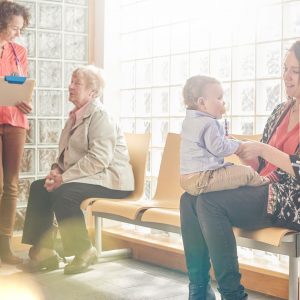While anxiety and concern related to the pandemic affect people of all ages, the elderly may be more susceptible to mental health disorders during this time. Do you know someone who is beginning to show signs of aggressiveness, confusion, and other inappropriate behavior? As loved ones age, it’s natural for some changes to occur. Occasional forgetfulness is one thing; however, persistent cognitive or memory loss is potentially serious. A diagnosis of possible Alzheimer’s disease could be something else.
Mental health disorders affect about 20% of older adults in the U.S. Unfortunately, nearly one in three of those seniors does not receive treatment. Depression and mood disorders affect up to 5% of seniors 65 and older living in the community, and up to 13.5% of older adults who receive home healthcare or are hospitalized. Most bipolar patients get diagnosed in early adulthood. It is estimated that only about 10% of individuals who have a bipolar disorder will have an onset after age 50, and that 5% will have an onset of the disorder after age 60.
It can be difficult to differentiate dementia and mental illness in seniors because the confusion, erratic behavior, and memory loss symptoms they experience are present in both diseases. Seniors are often overlooked, causing the rate of suicide to be higher in senior years than in any other age group. It is best to have a psychologist attempt to clarify whether there are symptoms of anxiety, bipolar disorder, dementia, depression and/or psychosis. It is helpful for the psychologist to speak with involved family members who may have observations of difficulties that the senior does not see. A complete neuropsychiatric consultation to diagnose the disorder should include cognitive tests, medication and supplement review, laboratory assessments and neuroimaging such as CAT scan or MRI.
Cognitive decline, loss of loved ones, memory changes, physical changes and retirement can all trigger significant emotional issues. Older adults experience stress like all people, but even the normal emotional and physical stresses that go along with aging can be risk factors for mental illnesses. Now, isolation due to concerns over their increased risk of severe illness from COVID-19 can take a toll on seniors’ mental health.
Careful attention to your aging loved one’s mental health is even more important now amid fear and stress over the ongoing coronavirus pandemic. During these times of social distancing, be sure to keep a close eye on your aging loved one when you’re dropping off groceries, talking on the phone, or doing a video chat to spot signs they need help. Do not hesitate to seek help if your loved one is experiencing any of the symptoms above. Your loved one’s family doctor is always a good place to start.
The Law Offices of Lisa C. Bryant, INC would be happy to connect you to appropriate resources or answer questions about how to support a loved one in their healthcare by becoming their agent through an advanced healthcare directive, call (408) 419-1361 to schedule a free consultation.
All materials have been prepared for general information purposes only to permit you to learn more about our firm, our services, and the experience of our attorneys. The information presented is not legal advice, is not to be acted on as such, and may be subject to change without notice.




